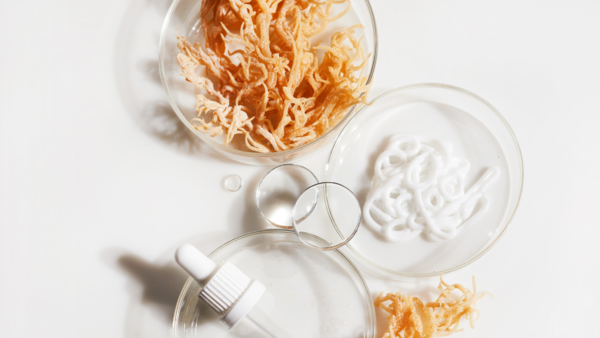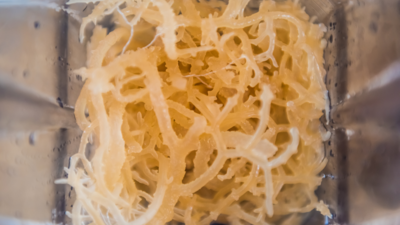The newest “superfood” that wellness influencers are raving about is sea moss. Products made from sea moss, typically in gel form, are said to offer several health advantages. These include defending against viruses and other microorganisms, as well as promoting immunological and brain function. For those who are unaware, sea moss is made from a type of seaweed, specifically red algae, which can be found growing in many different places across the planet. Everything you need to know about taking this dietary supplement is as follows:
What is sea moss?
Sea moss, also known as Irish moss or Chondrus crispus, is a type of red algae that grows along the Atlantic coastlines of North America, Europe, and the Caribbean Islands. Traditionally used in various cultures for its potential health benefits, sea moss has gained popularity in recent years.
Nutrient profile of sea moss
Sea moss is rich in essential nutrients, including:
Vitamins: A, C, E, K, and B-complex vitamins.
Minerals: Iodine, calcium, potassium, magnesium, zinc, and iron.
Antioxidants: Compounds that help combat oxidative stress.
These nutrients contribute to various health benefits associated with sea moss.

Sea moss benefits
According to Ginni Kalra, dietician, Aakash Healthcare, New Delhi, here are some potential health benefits of sea moss:
1. Thyroid Support: Sea moss is a natural source of iodine, a mineral essential for thyroid hormone production. Adequate iodine intake supports healthy thyroid function, which regulates metabolism and energy levels.
2. Digestive Health: The high mucilage content in sea moss acts as a soluble fiber, aiding digestion by promoting regular bowel movements and supporting gut health.
3. Immune Support: Sea moss contains vitamins and antioxidants that may bolster the immune system, helping the body defend against infections.
4. Skin Health: When applied topically or consumed, sea moss may improve skin hydration and elasticity, thanks to its vitamin and mineral content.
5. Heart Health: The soluble fiber in sea moss can help lower LDL (bad) cholesterol levels, potentially reducing the risk of heart disease.
Considerations and precautions when eating sea moss:
While sea moss offers various potential health benefits, it’s important to consume it in moderation due to its high iodine content, which can affect thyroid function if overconsumed. Additionally, sea moss may contain varying levels of heavy metals, depending on its harvesting location. Therefore, sourcing from reputable suppliers is crucial. As with any supplement, it’s advisable to consult with a healthcare provider before adding sea moss to your diet, especially if you have existing health conditions or are pregnant.
Incorporating sea moss into your diet can be done through various forms, such as gels, powders, or capsules. It’s commonly added to smoothies, soups, and other dishes to enhance nutritional content. However, more human studies are needed to fully understand its effects, and it’s best used as part of a balanced diet.





